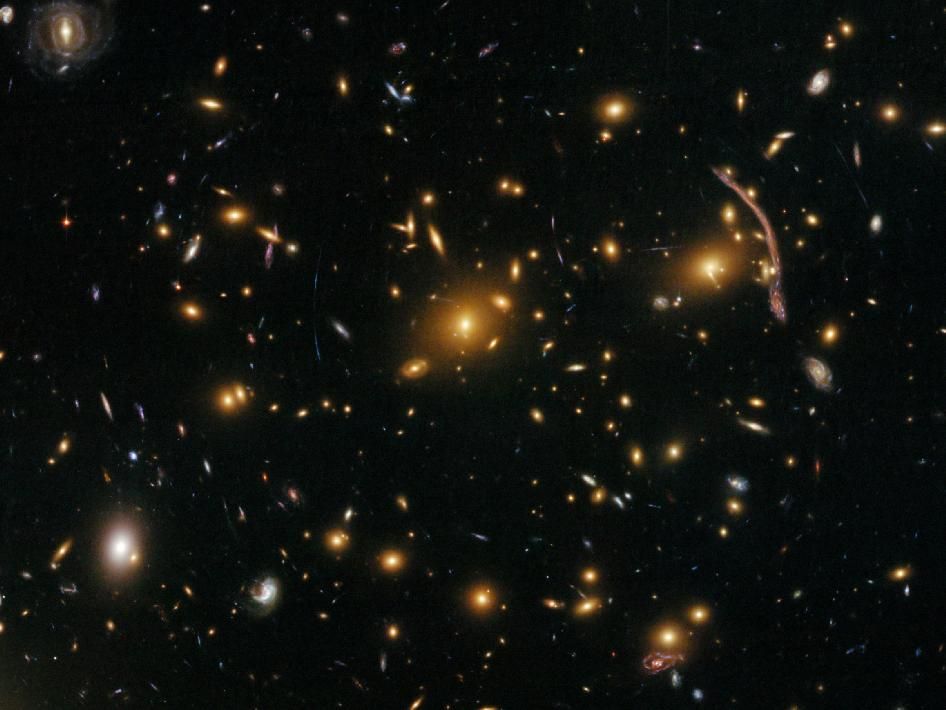
Space may feel like one long, dark stretch of emptiness, but it turns out there are even emptier pockets within that vastness.
Those cosmic voids, as astronomers call them, are gaps left behind during the universe's almost 14 billion years of expansion. A new paper published in the journal Physical Review D studied 774 of these cosmic voids to try to better understand what's happening in these ghost towns.
These areas particularly intrigue scientists because they have a lot of dark energy—which astronomers knows shapes the universe in crucial ways but struggle to study. In order to study the voids, the team behind the paper made use of data about the cosmic microwave background, a map of the very early universe that helped scientists determine just how old this whole world is.
In that image of the universe, hotter areas are fuller, and cooler areas are emptier. So the team selected 774 cool areas to study using a second set of data, the Baryon Oscillation Spectroscopic Survey, which gathers echoes of sound waves from when the universe was still young.
Read more: Black Hole Belches Bright Radio Flashes as It Devours Nearby Star
The result that puzzled the team most was that the voids appear to be warmer than they had predicted—after all, these are supposed to be cool, empty areas, not hotbeds of activity. Right now, they can't explain what's happening, and there's still a chance it's just a fluke in the data. But they hope taking a closer look deep into the voids could solve this mystery in the long term.
And there are a couple of instruments on the way that may make that task easier, if all goes well. That includes a space telescope called WFIRST, designed to crack the secrets of dark matter and dark energy and due to launch in the mid-2020s—if it survives proposed elimination by the Trump administration.
Uncommon Knowledge
Newsweek is committed to challenging conventional wisdom and finding connections in the search for common ground.
Newsweek is committed to challenging conventional wisdom and finding connections in the search for common ground.
About the writer
Meghan Bartels is a science journalist based in New York City who covers the science happening on the surface of ... Read more
To read how Newsweek uses AI as a newsroom tool, Click here.








